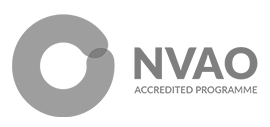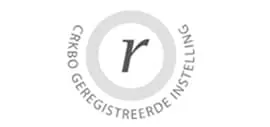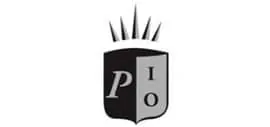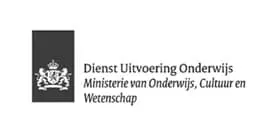The MBA program in the field of culture, heritage and citizenship.
The MBA program Culture, Heritage & Citizenship (CHC) is a joint program of Netherlands Business Academy and Amsterdam Summer University (AMSU) in collaboration with the Felix Meritis Connecting Cultures. The MBA program is designed for initiatives, project organizations, companies (NGOs), governments and semi-governmental organizations that are looking for positioning and repositioning of their role in the “participation society”. For our full-time English MBA please visit our City Campus website where all our fulltime international activities take place.
| Start | October/March | Selfstudy | 10 hours per week |
| Place | Dordrecht, Utrecht, Breda | Investment | € 31.282,24 |
| Duration | 2.5 years, 41 contactdays |
MBA CHC
Program
Admission
Practical
Teaching staff
Experiences
Who is this program for?
The training is designed for (future) managers in the broad heritage and cultural sector or those coming from other disciplines,who want to play a (final) responsible role in the necessary (re)positioning of art, culture and heritage institutions in the participation society.
Why this program?
● Unique accredited Masters degree in culture
● Part-time training for professionals
● Financing options
● More than 30 renowned guest teachers
● Can also be followed per module
● Access to high-quality knowledge network
● Small interactive study groups
● Side events abroad
After completing this course you are:
1. Expert active citizenship in culture
2. An effective leader
3. All-round oriented in the sector
In short
In this MBA you learn the most current theories in the field of leadership, new methodologies for positioning your institution, and you gain insight into the most important issues concerning heritage and citizen participation.
In addition to theory, there is much room for practice. You bring your own case study to the study program and apply the knowledge gained. Our teachers assist you with their expertise, and also make their networks available.
During the course you improve your discussion skills and substantiate your arguments with the most recent academic literature. You become an effective manager who knows how to position their organization in society.
Culture, heritage and citizenship
The participation society goes beyond the buzz word. The theme of citizenship is not only topical with the government; it is the new guiding principle in the broad cultural and heritage sector (archives, museums, monuments, performing arts, festivals and cultural industry).
Despite it’s importance, there is a lack of an interdisciplinary approach that brings together the management of citizenship programs, culture, heritage, (public) buildings and institutions. Too often, annual figures, occupied seats and returns take precedence over the relationship between the institution and society.
The parties in the market gradually come to the conclusion that the participation of citizens in the solutions of social issues must be organized in a very different way. Too many well-equipped providers are only suppliers of services to the (subsidizing) government.
Because of their nature and continuity, cultural and heritage institutions can play a decisive role in the contact between citizens and society. In addition to fulfilling the core task, the institution is increasingly becoming a “citizenship educator”.
Business approach
A more entrepreneurial and business-like approach to the market for successful citizen initiatives requires a solid theoretical and practical basis. This is achieved thanks to the combination of business administration, leadership courses, and subject-specific integration lectures by specialists from the field.
Under the guidance of the Expert Active Citizenship in Culture, interested citizens, cultural and heritage institutions, NGOs and companies will be able to convert successful cases and projects into continuity. As a result, a network of knowledge and experience centers can develop so that the government will no longer be merely a lender and / or initiator, but will become a fully-fledged discussion partner in increasingly complex change processes in society.
European orientation
The European Commission has given this training international recognition and allure by awarding an Erasmus + subsidy to the Netherlands Business Academy. An interdisciplinary and joint European MBA CHC Curriculum is being developed in collaboration with six European institutions in the field of culture and higher education.
Students can participate in the international Summer Universities organized in this context. This experience and this network of contacts will offer them the opportunity to grow into international, all-round managers who know how to combine knowledge of cultural processes with innovative, business-like insight.
Perspective
After successful completion of this training you will be entitled to call yourself Expert Active Citizenship in Culture. You are an all-round manager who can combine knowledge of cultural processes with innovative business insights. You are part of a high-quality knowledge network that will be invaluable, especially after completion of the training.
Why is this training unique?
The uniqueness of the training lies at the intersection of the management of non-governmental (social) cultural organizations and of European citizenship in action.
There is a great need for broad fundamental knowledge in both fields. The combination of both in an integrated approach will not only promote the professionalism of individual participants and their companies, but can also provide a qualitative boost to the necessary internationalization of the broad heritage and cultural sector within the EU.
This MBA is the only integrated study program in the Netherlands and Flanders that links theory from different disciplines to practical experiences, and is directly linked to unruly cultural practice.
Accreditation
The Dutch MBA of Culture, Heritage & Citizenship is NVAO accredited.
Program of the MBA Culture, Heritage & Citizenship:
Kick-off
• Self-management, Leadership & Coaching
• Methods & Techniques of Research
Block 1:
• Finance, Management & Control
• Operations Management & Quality
• Human Resource Management
• Project Management
• Marketing
Block 2:
• Strategy & Policy
• Management Control & Information Systems
Block 3:
• Leadership
• Change management
• Ethics
Integration lectures:
• Lectures focused on Culture, Heritage & Citizenship
Block 4: Thesis
• Master Thesis Writing
Admission
To follow the MBA CHC, you must have at least a bachelor diploma and three years of relevant work experience. You discuss your personal (work) situation and wishes during an intake interview. Based on this you will receive a study advice and you can be admitted to the study program.
Do you not exactly meet the admission requirements? If you can demonstrate to have at least five years of relevant professional experience at a higher professional education level and that you have gained substantive knowledge through training or courses, adminission may be possible. This is tested during an intake interview.
Duration and study load
The part-time MBA CHC lasts 2.5 years. Outside of class hours, the study load will be an average of ten hours per week.
Lecture days
The lectures are on Monday afternoon and Monday evening, every other week. Consultation meetings will take place in the morning. Here, together with your fellow participants, you will work on cases and assignments, prepare presentations and give feedback on each other’s work. This is all done with the guidance of lecturers and NLBA employees.
Location
The MBA CHC can be attended in Dordrecht, Utrecht, and Breda (subject to sufficient participation per location).
Costs
Total: € 31.282,24
This does not include literature, location and accommodation costs and VAT. Contact us for a detailed cost overview.
Teachers
In addition to the teachers who are used for the regular MBA program, we also work within the Master Culture, Heritage & Citizenship with a large number of guest teachers:
• Dr. Franco Bianchini, Regeneration of Cities, Leeds Beckett University, UK
• Drs. Huib Boissevain, dir. Annexum, investment expert and real estate expert
• Prof. Ir. Pi de Bruijn, architect
• Drs. Michiel Buchel, managing director NEMO
• Dr.h.c. Jurn Buisman, entrepreneur and owner of private museum collections
• Freek van Duijn, interim management & advice in the cultural sector
• Prof. Matthijs van Dijk, University Delft
• Dr. Dos Elshout, University of Amsterdam, Cultural sciences
• Egbert Fransen, entrepreneur, managing director Pakhuis de Zwijger
• Prof. Paul Frissen, University Tilburg & dean Dutch School of Public Administration
• Drs. Cees de Graaff, managing director Dutch Culture
• Tabo Goudswaard, artist and designer
• Drs. Menno Heling, innovative internet solutions for culture and tourism
• Prof. dr. Zef Hemel, spatial planning specialist, Wibaut chair UvA
• Jo Houben, expert governance, fmr. Director of Corporate Culture
• Drs. Liesbeth Jansen, project director Marineterrein, director Left Bank, revitalization of areas and buildings
• Drs. Jaap Lampe, resigning general director of Stadsschouwburg & amp; Philharmonie Haarlem
• Drs. Bert Mulder, fmr. lecturer in Information, Technology and Society, The Hague University of Applied Sciences
• Prof. dr. Mario Neve, University of Bologna, Campus di Ravenna
• Ryclef Rienstra, director of the VandenEnde Foundation
• Drs. Paul Spies, Direktor Stadtmuseum Berlin and Chef-Kurator des Landes Berlin in the Humboldt Forum
• Dr. Renée Steenbergen, senior researcher Mecenaat, Utrecht University
• Drs. Oeds Westerhof, project director Leeuwarden Cultural Capital of Europe 2018
• Drs. Hala Naoum Néhmé, economist & amp; political scientist, member of the Amsterdam City Council
• Drs. Deirdre Carasso, director of the Municipality of Schiedam
• Drs. Saskia Moerbeek, director of the Foundation for the Promotion of Social Participation
• Trevor Davies, Director European Cultural Capital Copenhagen and Aarhus
• Farid Tabarki, trend watcher & amp; all-round generalist in global topics
• Mr. Jaap Hoeksma, philosopher and publicist, Europe expert
• Drs. Harry Starren, columnist Financieel Dagblad, former director De Baak
• Drs. Melle Daamen, former-director Mondriaan Fonds and former-director Stadsschouwburg Amsterdam
• Ernst Veen, former-director Nieuwe Kerk and founder of the Hermitage aan de Amstel
• Ed Hagedorn, former-director HRM De Baak
• Duncan Stutterheim, entrepeneur in the creative industry
Moderators: Dr.h.c. Steve Austen, experienced pioneer in arts and entrepreneurship in Europe and Farid
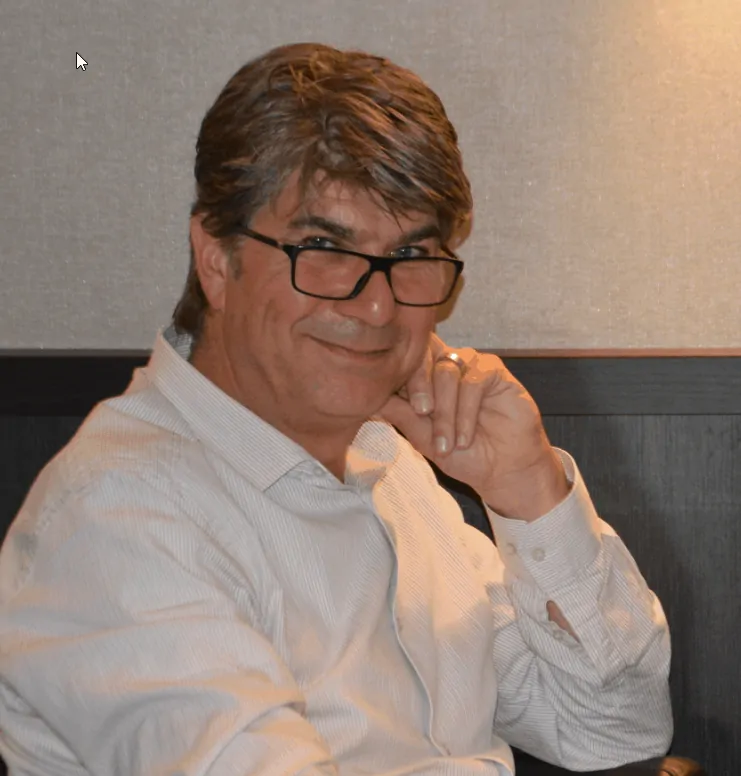
“ Cultural content, managerial challenges and fundamental deepening of tailor-made self-knowledge offered; I wish I had followed this study earlier in my career!”
– Paul du Crocq
“ This training provides the right depth and challenge. The combination with the business and general aspects of business in combination with cultural enterprise ensures that I can already apply what I have learned.”
Anja van Keulen
Currently, the NLBA programs are only offered in Dutch. For information regarding an English trajectory, contact us at info@nlba.nl
- Accredited programs
- Personal attention and customization
- Dutch language academic education
- Practical approach
- Large network of alumni
- International cooperation


